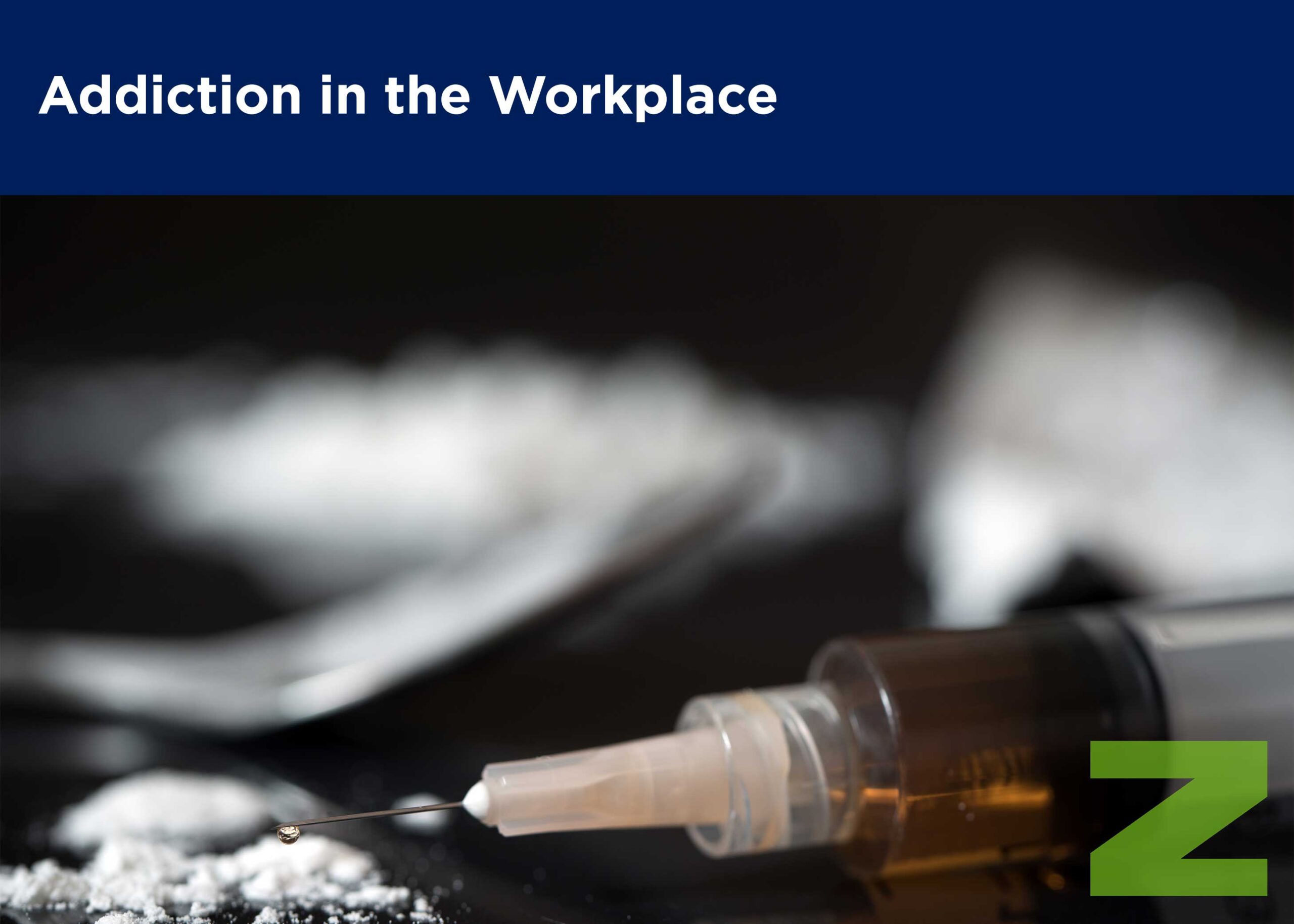How To Handle Addiction in the Workplace
Addiction to drugs has become an epidemic in our country. So much so, that this problem often carries over into the workplace. Employers should educate themselves on the legal issues surrounding this matter to reduce the risks of liability that can result from taking certain employment related actions. Below are the three most common scenarios on which we counsel employers when it comes to addiction in the workplace.
Scenario 1: An Employee Discloses an Addiction, but Hasn’t Violated a Drug Policy
This comes up more than you would think…
An employee comes to his manager and discloses he has been struggling with drug addiction and needs to take time off of work to seek rehabilitation. The employee hasn’t violated any drug policy at work. In fact, the manager hasn’t even had reason to suspect drug use.
In these cases, the employee usually discloses an addiction because he wants to take a medical leave for inpatient rehabilitation or other similar treatment. The Americans with Disabilities Act (“ADA”), a federal law that applies to employers with at least 15 employees, may provide for a medical leave for this employee. In addition, if this employer is covered by the Family Medical Leave Act (“FMLA”), a federal law that generally applies when the employer has at least 50 employees, the employee may also be entitled to a medical leave under this law. There could be other applicable state leaves that may provide for a medical leave for this employee as well.
The type of leave the employee may be entitled to depends on what type of medical documentation he is able to produce showing a leave is needed. It also depends on applicable law. If a medical leave is provided, we often advise having the employee sign a return-to-work agreement stating that he must provide a negative drug test to return to work and will be subject to random drug testing for a certain period of time.
Also important to remember: since the employee in this situation is not in violation of a drug policy, there would not be any reason to discipline him (we get that question a lot).
Scenario 2: An Employee Has Violated a Drug Policy and then Discloses an Addiction
Let’s say…
An employee tests positive for illegal drugs as the result of a request for a test under the employer’s drug testing program and then discloses he failed because he’s an addict.
While it’s true that addicts can be protected from discrimination under the ADA, FMLA and other similar laws, the employer can set up a good defense to those types of claims in this situation. If the employer enforces its drug testing policy consistently with all of its employees, meaning that all employees who test positive for drugs are terminated, the employer would have a good defense to a discrimination claim. However, if the employer gives some employees a second chance after failing a drug test, this employee should get the same treatment or the employer might have a hard time defending a claim.
The same is true if an employer requests a drug test and the employee refuses the test stating he will fail because he’s an addict. The first question asked in this situation is: “How has the employer handled other employees that refused a drug test?” If the answer is termination, then the same treatment should be given to this employee. If it’s a second chance, the employer should be consistent with the addict.
Scenario 3: An Employer wants to Terminate an Employee for Poor Performance but the Employee Blames his Addiction for the Problems
Let’s pretend…
An employer has perfectly documented an employee’s poor performance and is ready to terminate an employee. During the meeting, the employee tells the employer the reason his performance has suffered is because he is an addict. He asks that he be given a chance to take a medical leave to go to rehab in lieu of being terminated.
How an employer responds depends on a couple of things:
First, notice the assumption made that the employer has perfect documentation. If such isn’t the case, denying his request is quite a risk. If the employer does have good documentation, however, the employer may be able to terminate if: (1) termination is warranted; and (2) others in similar circumstances have been treated the same.
The trickier part is when the employee makes a request for a medical leave BEFORE the employer gets a chance to tell the employee they are being let go for poor performance or violating company policy.
This situation necessitates a call to ECRM to walk you through this process because in some instances, the less risky road to take is to accommodate a request for inpatient rehab. Timing can sometimes be the critical factor that determines how to respond.
If the employer chooses not to terminate:
In both fact patterns under scenario 3, the employer could have the employee sign a return-to-work agreement stating that he must provide a negative drug test to return to work and will be subject to random drug testing for a certain period of time.





